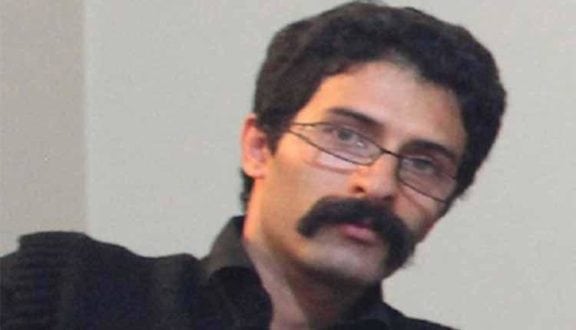Iran-HRM – The Office of the Prosecutor in the city of Karaj has refused to authorize hospital transfers for prisoner of conscience Saeed Shirzad, putting him at grave risk of losing a kidney.
The children’s rights defender has been recently taken to a hospital in Karaj, following severe kidney pain.
Doctors said his right kidney has shrunk to an abnormal size and the left one is suffering from a cyst and if he is not treated, he could lose one of them.
According to the doctors’ diagnosis, Mr. Sherzad’s kidney disease is a result of hunger strike and inappropriate nutrition in prison.
Shirzad’s requests to be hospitalized outside of Raja’e Shahr Prison, were rejected by the prosecutor’s office in the city of Karaj.
Saeed Shirzad had been admitted to the prison’s clinic for severe kidney pains on several occasions and had received emergency treatment at a hospital in Karaj on October 8, 2018. He has also been experiencing pain in his back.
Saeed Shirzad is serving six years behind bars since September 2015, after Branch 15 of the Revolutionary Court convicted him of “gathering and colluding to commit crimes against national security”.
According to Amnesty International the conviction stems solely from his peaceful human rights activities, including contact with the families of political prisoners, and communicating with the office of the UN Special Rapporteur on the situation of human rights in Iran.
In late October 2017, the Revolutionary Court in Evin Prison in Tehran charged Saeed Shirzad and with “disturbing order” and “insulting the supreme leader and other officials.”
The prisoner of conscience Saeed Shirzad was subsequently sentenced to six more months behind bars, increasing his total term to six years and a half, for engaging in peaceful activism including going on a hunger strike inside Rajae’i Shahr Prison, where he is being held.
The Office of the Prosecutor, which in Iran is responsible for decisions concerning medical leave and hospital transfers, often refuses to authorize hospital transfers for sick prisoners even though the care they need is not available in prison, and denies requests for medical leave for critically ill prisoners against doctors’ advice.
 Shabtabnews In this dark night, I have lost my way – Arise from a corner, oh you the star of guidance.
Shabtabnews In this dark night, I have lost my way – Arise from a corner, oh you the star of guidance.



